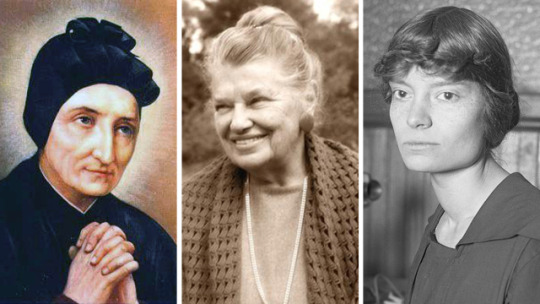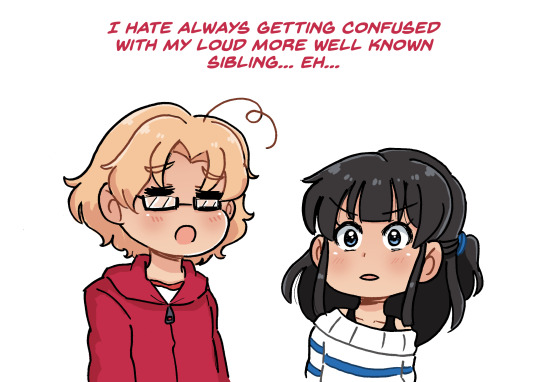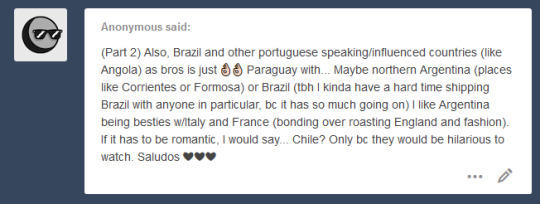#save me uruguayan man
Text


But daddy I love him
#enzo vogrincic#la sociedad de la nieve#premios platino#save me uruguayan man#taylor swift reference
239 notes
·
View notes
Text

#has this been done yet#save me uruguayan man#Enzo Vogrincic#La Sociedad de la Nieve#Society of the Snow#save me meme
65 notes
·
View notes
Text




Enzo Vogrincic at the Oscars 2024 ✨
#enzo vogrincic#oscars 2024#oscars#society of the snow#we were robbed#la sociedad de la nieve#uruguay#j.a. bayona#save me uruguayan man
51 notes
·
View notes
Text
sometimes a babygirl is a uruguayan man in his 30s


#enzo vogrincic#enzo vogrincic x reader#society of the snow#la sociedad de la nieve#girlblogging#save me uruguayan man save me
3K notes
·
View notes
Note
NINA PENSA COMIGO!!!! libertadores 2023, a leitora unica brasileira no meio de todas aquele argentinos malditos, ou seja, ela ta por si mesmo ate lembrar que o enzo é uruguaio. mas ela nao cria muita expectativa achando que ele ia torcer pra argentina. ta rolando jogo, pipe e matias insuportáveissss e leitora sendo obrigada (ou nao) torcer pela vitoria do fluminense.
mas nao entende nada de futebol, entao fica plena e evita ver pra nao jogar mal olhado e brasil não perder, vai pra varandinha fica la. o enzo vai atras dela e tenta acalmar ela. acalma ela comendo ela por trás. 🥰
credo torcer pro fluminense
13 notes
·
View notes
Text
💯Happiness Hacks: Ignite Life's Bliss
Love yourself, you're enough.
Follow passion, find purpose, soar.
Rise above, shine regardless.
Quiet heart, resilient spirit, triumphs.
Cultivate calmness, bloom beautifully.
Free gift available, tap for motivation.💗
#save me uruguayan man save me#ai waifu#uykusuzlukbelirtisi#black girls of tumblr#sonyalpha#gofundme#pencil#i need someone older#lana del rey aesthetic
0 notes
Text
that one Enzo Vogrincic do you know what love is? edit on twt ..... changed my life forever....

1 note
·
View note
Text


save me uruguayan man. uruguayan man save me.
211 notes
·
View notes
Text

SAVE ME URUGUAYAN MAN
URUGUAYAN MAN SAVE ME
#AAAAAASMAKSNAKKDNAKDKANDKAKJSKAJDKAJXKALXJAKDNAKNXKANX EU ENTREGO MINHA VIDANAS MAOS DESTE HOMEM PRA ELE FAZER O QUE QUISWR DE MIM!!!!!!!!!#mari.txt#enzo vogrincic#lsdln
26 notes
·
View notes
Text

save me enzo vogrincic
enzo vogrincic save me
pls save me uruguayan man
47 notes
·
View notes
Text
Favorite episodes from my favorite podcast - Part 3 📻
This is part 3 of my favorite episodes from "Radio Ambulante" podcast. Enjoy!
El mago. (The magician). This is also in my top 5 (maybe in the #1 spot, I love this episode so much!). I cried a lot, tears of sadness and joy. After years of effort, an Ecuadorian immigrant manages to be recognized as a magician in NY and when he finally achieves success, he loses his sight.
Luna llena sobre Chiapas. (Full moon over Chiapas). Hey, paranormal stuff (although it scares me) has fascinated me since I was little. This episode of nahuales in Mexico is super good.
Los flequilludos. (The bangs). I really didn't know how to translate the title into English. This episode is hilarious. I laughed like crazy. In Argentina in the 60s, chaos breaks out when a TV channel brings in a group of Beatles imitators and people think they are the originals hahaha great.
240 aves. (240 birds). Beautiful episode. A Uruguayan man who was born blind develops incredible hearing ability; He can recognize any bird just by listening to it. His ability makes him win a television contest where geniuses from all over Latin America participate
Las escaladoras. (The climbers). A group of Bolivian 'cholitas' challenge traditional gender roles and manage to climb the most important peaks in their country and the world. Super inspiring.
Emos vs. punks. This infamous episode is said to be one of the things that keeps Mexico humble. If you grew up in the 2000s, like me, you must be familiar with emos (you probably were one) and you'll love this episode.
¿Alguien ha visto a este muchacho? (Has anyone seen this boy?). Slavery, although abolished 200 years ago in most of the continent, still exists. As city people, we are often so foreing to the harsh realities of rurality. This is a story from Brazil.
La rata que amé. (The rat I loved)." A Colombian scientist who works in a laboratory in the United States saves the life of a rat on which he experiments and even adopts it as a pet. This experience makes him question many things and changes his life.
Las llaves. (The keys). This episode is top 5 for me. You cannot measure the anguish I felt listening to it. Kidnapping, manipulation, misogyny, slavery. A harsh story from Venezuela. One of the ones that has impacted me the most on the podcast.
Hombre busca ayuda. "Man seeks help." One of the best initiatives that the district of Bogotá has carried out in recent years (in my opinion) has been the "Calma" hotline to provide psycological help to men and deconstruct toxic masculinities typical of Latin culture.
I thought this will take me just three parts, but there are so many good episodes of the podcast that I really really like so I will include in part 4.
#América Latina#Podcast#Podcasts#Radio Ambulante#Spotify#Colombia#Venezuela#Brazil#Brasil#Mexico#Bolivia#Argentina#Uruguay#Ecuador#writing#blog#blogger#me#real life stories
0 notes
Text


Enzo Vogrincic para Loewe.
#enzo vogrincic#la sociedad de la nieve#save me uruguayan man#películas#loewe#loewe fw24#loewe spot#loewe ss24#sheep#ovejas
93 notes
·
View notes
Text

Taken by Agata Pospieszynska
22 notes
·
View notes
Text

Saints to Help if Mother’s Day is Hard
If this is a painful holiday, for any reason, these saints can be a guide.
Mother’s Day can be a beautiful holiday, a day to celebrate your mother or to be celebrated as a mother. For many, though, this is a painful day, as they remember their late mothers, grieve their broken relationships with their mothers or their children, mourn their lost children, or lament the children they’ve been unable to have.
If Mother’s Day is hard for you, it may help to find some saints who can walk with you in your particular struggle. You are not alone.
If your mother has passed away
St. Rafqa Pietra Choboq Ar-Rayès (1832-1914) was a Lebanese girl of only seven when she lost her beloved mother. At 11, financial difficulties compelled her father to send Rafqa out to work as a servant; when she returned a few years later, she discovered that he had remarried. She never got along with her stepmother, who tried to pressure Rafqa into marriage. When Rafqa became a religious instead, she took the name of her beloved mother as her religious name. She suffered from debilitating chronic illness and for many years was blind and entirely immobile.
If you’re estranged from your mother
St. Maddalena of Canossa (1774-1835) was the oldest of four noble Italian children. When she was five, her father died, and two years later her mother abandoned the children in order to remarry. She left them with their uncle (a marquis), who found a governess to raise them. Little Maddalena was devastated and turned to the Blessed Mother for comfort. “I wept … before Mary,” she later said, “invoking her in tears and calling her by the name of ‘mamma!’” Though Maddalena eventually took the title marchioness and acted as hostess in a home so distinguished that it hosted Napoleon himself on several occasions, she longed to serve the poor and abandoned. Eventually, she left her title and her wealth behind to found the Canossian Sisters.
If you’ve lost a child to miscarriage or stillbirth
St. Gianna Molla (1922-1962) was an Italian doctor who married at almost 33 with hopes of having a large family. By their fourth anniversary, Gianna and her husband Pietro had three small children. But Gianna lost her fourth and fifth children to miscarriage; each time she was disconsolate, worried about the fate of her babies’ souls and begging her friends to pray for them. When she became pregnant again and doctors found a tumor in her uterus, Gianna was ready to do whatever was necessary to save her baby, reminding Pietro, “If you must decide between me and the child, do not hesitate: choose the child—I insist on it. Save her.” The baby was born healthy but Gianna died of complications a week later.
If you’re mourning the loss of a child after birth
Sts. Peter Choe Chang-hub and Magdalena Son So-Byok (1786-1840, 1801-1840) were a married couple from Korea. They were parents of a young daughter when they lost their second child as an infant. And their third. And their fourth. Nine children in a row. All died as infants. Finally, another little girl survived, a balm for the grieving parents’ souls, though they must surely have ached for the little ones they had buried. In 1839, when their oldest daughter (St. Barbara Choe Yong-i) was a young mother and their youngest daughter was only 2, the family was arrested along with Barbara’s husband (St. Charles Cho Shin-chol). Having entrusted their surviving children to others to raise, all four adults were tortured and martyred.
If you’re estranged from your child
St. Martha Wang Luo Mande (1812-1861) was a Chinese laywoman who was unable to conceive but adopted two sons with her husband. Unfortunately, their sons became accustomed to wild living, spending their parents’ money even after their father’s death left their mother alone. Realizing that she had done all she could for them, Mande cut them off financially and moved away to run an inn, where she became a Catholic. Mande eventually went to work in the seminary; when the seminary was closed and its students imprisoned, Mande continued to bring them food in jail. And when those seminarians were being taken to their death, one of the guards tried to scare Mande by threatening to kill her, too. “Ah, well, that’s fine,” she said, as simply as always. “If they can die, so can I.” So she did.
If you were never able to conceive
Servant of God Elisabeth Leseur (1866-1914) was a French woman married to an atheist who scoffed at her faith, though he loved her very much. The two were married for 25 years and were never able to have children. When Elisabeth died, her husband read her diary and was converted by the depth of faith and love he found there; he went on to become a Dominican priest.
If you’re unmarried
Bl. Consuelo Aguiar-Mella Díaz (1898-1936) was a vivacious, fashionable Uruguayan woman who moved to Spain as a toddler, where she eventually worked in the property tax office and hoped to marry. At 38, she was dating a Spanish man and approaching engagement to him, but the Spanish Civil War separated them. Consuelo carried her Uruguayan diplomatic passport at all times for her protection, but was martyred with her sister Bl. Dolores Aguiar-Mella Díaz; unbeknownst to Consuelo, only three days earlier her boyfriend had been killed 200 miles away.
If you’re parenting alone
Servant of God Catherine Doherty (1896-1985) was a Russian noblewoman who married her first cousin and served as a nurse in World War I before fleeing Russia during the Russian Revolution. The couple made their way to Canada, where Catherine gave birth to a son. Not long after, Catherine left her abusive and adulterous husband, later becoming a Catholic and obtaining an annulment. She and her son moved to New York where Catherine worked with the poor and fought for interracial justice. She married at 47 (after her son was grown) and, with her husband, founded a community called Madonna House that is still active today.
If you’ve had an abortion:
Servant of God Dorothy Day (1897-1980) was a convert to Catholicism and the founder of the Catholic Worker movement, an international movement of solidarity with the poor. Before that, she was a single mother. Before that, she had an abortion. She’s a beautiful witness of the healing that parents can find after abortion and the way God can work in them to make them great saints.
11 notes
·
View notes
Text
Why Feuilly cares about Italy or “a lot of words to explain Hugo’s crush on Garibaldi”- part 4.2
Hi everyone! I’m officially back *trumpets play a funny song* and with me, it’s back also my niche history corner for everyone interested in answering the question: why did Hugo care about Italian politics?
My friends this is THE chapter, the chapter everyone was waiting for, the chapter that starts to finally explain the title of this series of little history lessons: yes, you guessed it, it’s about Giuseppe Garibaldi.
First of all though, if someone has no idea of what I’m talking about because this is the first time they see me posting anything like this: here, here, here and here you can find the first four parts.
If you’re here just for the main man, Garibaldi, or you just don’t have time to read the other four parts, just a quick reminder: the Kingdom of Sardinia, Piemonte and Savoy are the same thing (more or less, it’s a bit complicated, but this way you’ll follow better the events).
And finally a disclaimer: Garibaldi is a HUGE figure in the history of Italian independence, he is the pinnacle of Italian heroism and he remains on a pedestal of bravery and glory. And he was kind of an incredible figure, I mean I’m not surprised in the least that both Hugo and Dumas LOVED him, he was everything they liked in just one person: (sorry for the spoilers!) he had been a sailor, he was in a secret society, he had been a corsair, fought in, at least, three war of independence, changed identity too many times to be counted, had a romantic and tragic love story started with love-at-first-sight first meeting, he had been a factory worker, he freed slaves, he insulted kings and he was a fervent republican.
But as we well know, and Hugo himself in the book we are all here to analyze in its every detail, no man is perfect and Garibaldi certainly wasn’t. He was better than most, but not perfect.
Why am I saying this? Because I’m not a historian and I’m not perfect either so it can be that some part could be more pro-Garibaldi than they should be, I tried my best though!
The last disclaimer then I’ll start, I swear: there is a part about Brasilian history. Do I know a lot about Brasilian history? Unfortunately not! Did I try to research enough not to say anything really stupid? Yep! Still, if someone wants to expand on that subject or correct me or specify something I couldn’t be happier!
And now let’s begin!
Giuseppe Garibaldi was born in Nice on 4 July 1807. Second son of Domenico, a merchant captain, and Rosa Raimondi. At 8 years he saved a laundress who was drowning and helping people drowning was a constant through his whole life, so much so that it is reported that he saved at least 12 other people in the course of his life.
His parents wanted to make him study to become a lawyer, a doctor or a priest, but Giuseppe did not like to study, preferring physical exercises and sea life. Seeing himself hampered by his father in his vocation to become a sailor, during the holidays he tried to escape to the sea from Genoa with three of his friends. Discovered by a priest who warned the family, he was stopped as soon as he reached Monaco and brought back home (rumors has it that this episode was the beginning of his dislike of the clergy, but I prefer to think his dislike for the clergy was rooted in the knowledge that it was a corrupt institution rather than for some petty teenage resentment).
In the end, he was able to make his dreams come true and become a sailor, he was, first of all, on the brig Costanza, then sailed with his father and other ship-owners to the East. At 25 he commanded a ship of his own and the following year, in 1833, in an inn of Taganrog, on the Black Sea, informed by a friend of his of the Mazzinian political action (= trying to create a Republic in Italy), he was "initiated", as he himself said, to the "sublime mysteries of Patria", and decided to devote himself to the national cause by enrolling in the secret society founded by Mazzini called Giovine Italia (which meant Young Italy).
He embarked as a simple sailor with the name of Cleombroto (which is the name of a Spartan king who fought against Thebes) on the frigate Des Geneys, to participate in the revolt that should have helped the Mazzinian expedition to Savoy.
The revolt failed in February 1834 and he was forced to flee. He was almost caught several times during the escape, after having passed the Varo river (between Savoy and France): the first when on the border it was led momentarily to Draguignan, then to a tavern where he sang all night to escape the host who threatened to denounce him. Finally, he arrived in Marseille.
Meanwhile, he had been declared one of the leaders of the conspiracy and he was sentenced to an ignominious death in absentia as an enemy of Patria and the State. Garibaldi thus became a wanted man and for that time he lived with his friend Giuseppe Pares. Escaping again under a false name, he assumed the identity of an Englishman, Joseph Pane: on the 25th of July, he set sail towards the Black Sea on the French brig Union declaring he was a 27-year-old born in Naples.
He disembarked on the 2nd of March 1835 and in May he was in Tunisia. When he returned to Marseille he found the city devastated by a serious cholera epidemic and so offered himself as a volunteer to work in a hospital and stayed there for fifteen days. Since the routes were partly closed due to cholera, Garibaldi decided to leave for South America with the intention of propagating the Mazzinian ideals.
On September 8, 1835, he left Marseilles on the Nautonnier brig, assuming the false identity of Giuseppe Pane and claiming to have been born in Livorno.
In Rio de Janeiro he participated with other Italian exiles in the meetings of the Giovine Italia. Later he agreed with his friend Rossetti to run a war in favor of the state of Rio Grande do Sul that was rebelling against the Brazilian government, he first became a corsair in the name of the rebellious state (he apparently refused to take any part of the loot for himself even when he became captain and made a point to free any slave they encountered in their missions) and he later became commander of the war fleet. This experience will have great value for the formation of Garibaldi both as a leader of men and as an unpredictable tactician.
In the city of Laguna in 1839 Garibaldi met the woman he would have married some years later: Ana Maria de Jesus Ribeiro da Silva. It is said that, after having seen her with the binoculars while he was on board of his ship, once he reached her on the shore, he said in Italian "tu devi essere mia" (= “you must be mine”). Ana Maria, at the time 18 years old while Garibaldi was 32, had married four years before with a shoemaker, Manuel Duarte de Aguiar, much older than her, who, enlisted among the imperial troops, had fled from Laguna sometime before, but his wife did not follow him.
Garibaldi and Ana Maria passed to history and almost to the legend of the Italian Risorgimento with the diminutive Anita, married on March 26, 1842, at the church of San Francisco of Assisi with a religious rite. It is often told that Anita, a skilled horsewoman, taught Garibaldi how to ride, Giuseppe, in turn, instructed her, by will or by necessity, to the rudiments of military life.
At the beginning of 1842, forced to flee in Montevideo, Garibaldi brought with him Anita, he entered in the Uruguayan navy and he immediately resumed fighting in favor of Fructuoso Rivera against Oribe, supported by the Argentine Dictator De Rosas.
At the command of a flotilla, he was forced by the Argentine fleet near Nueva Cava to seek refuge ashore. Garibaldi had the command of a new flotilla and, having organized an Italian legion, went up the Plata. In September 1846 he was called back in Montevideo where he received the news of the Palermo’s revolution which persuaded him to embark for Italy.
In January 1848 he sent Anita and her sons (from the previous marriage) to Nice to his mother, but the Savoy ambassador didn’t allow him to embark until April of the same year. Once he arrived in Gibraltar, he learned that the king of Sardinia was preparing to intervene against Austria, so he decided to land in Nice, where, to the surprise of his fellow Mazzinians, he declared "not to be Republican, but Italian".
What did these simple words mean? You might ask, my dear readers. Well, they meant that Garibaldi who was a quite good military strategist and a not-too-bad political strategist had understood that the only chance for Italy to become a united, independent state was the Savoy family: Italy had to be united under a monarchy before becoming a Republic.
Was he right? We will never know and we will never know how much he actually believed in the Savoy monarchy. All we can say is that they did manage to unite Italy (after a couple of decades) and that Italy did become a Republic, just only 85 years later.
But back to the first war of independence!
Garibaldi was coldly received by the Sardinian government which wasn’t really convinced he had abandoned his republican dreams especially because Garibaldi was a severe critic of the at-the-time king of Savoy, Carlo Alberto. So much so that the king gave the order to stop him and, if deemed necessary, also to arrest him, causing the desertion of some volunteers. Not even bothered about that, at the command of a group of volunteers, he fought in Luino and conquered Varese which he had to abandon shortly afterward. He resisted in Morazzone and then, pressed by the overwhelming Austrian forces, he sheltered in Switzerland.
Back in Nice, he left with a few hundred volunteers for Sicily, but, having stopped in Tuscany, he offered his sword to the Roman Republic: first he fought in Macerata, which appointed him deputy to the Constituent Assembly, and then in Rieti, he was later called to Rome for the last defense against the French. After the bloody battle of April 30th, 1849 he participated in the brief campaign against the Neapolitan army, interrupted by Mazzini, and later he fought in the siege of Rome which ended with the fall of the Republic.
Garibaldi escaped and repaired to San Marino, from which he intended to reach Venice still a free Republic. Still, in San Marino, he discovered that his wife, who had already been sick for the whole journey, had cholera. They had no choice but to try and find shelter in Venice, but on the way, they were attacked by Austrian ships and they landed on the coast of Magnavacca (now Porto Garibaldi), in the pursuit that followed Garibaldi would carry Anita in his own arms since she was too sick to even walk. In August they were able to find a ship to escape the Austrians but once on the ground again, Anita died.
Garibaldi wanted to give his wife a dignified burial and to transport her to the nearby Ravenna, but there was no time and a grave was hurriedly dug in the sand of the pine forest. A few days later, a young girl, discovered the corpse and it was transferred in the cemetery of a nearby town.
The causes of Anita's death were long discussed in later years, even to attack Garibaldi. Eleven years later, on September 20, 1859, Garibaldi with his children Teresita and Menotti will return to Ravenna to move the remains of Anita to Nice, alongside those of Rosa, Garibaldi's mother.
Escaping through Romagna and Tuscany he managed to reach the Piemontese territory, from which, without protests, he accepted to be exiled. First, he stayed as a guest of the Piemontese consul of Tangier, then he went to New York to work in a candles factory, he finally resumed sailing in Central America, and between Peru, China and Australia.
Conquered by the realistic politics of the Sardinian government, in 1854 Garibaldi returned to Europe. After a shipwreck, Garibaldi stopped being a sailor for a while and decided to devote himself to agriculture, working as a farmer and breeder: he owned an olive grove with about 100 olive trees, as well as a vineyard, with which he produced wine, and raised 150 cattle, 400 chickens, 200 goats, 50 pigs and more than 60 donkeys (this isn’t really important information, but I thought it was something nice to know, he brought there his children to help him, it’s a really lovely image).
In August 1856, following a secret meeting with Cavour he made his thoughts public by distancing himself from the Mazzinian positions. In December 1858 he met Cavour again, but this time publicly, on that occasion he also met Vittorio Emanuele (the new king of Savoy). He became vice-president of the National Society (a society that believed in a united Italy under the Savoy monarchy) and he was put at the head of troops: the next year the Hunters of the Alps were established, thanks to a royal decree and Garibaldi had the rank of major general.
In command of the Hunters of the Alps, he won the battles of Varese and S. Fermo, he protected the flanks of the Franco-Piemontese army and entered triumphantly in Brescia. Throughout this campaign, the number of volunteers following him grew from around 3,000 to a number not well quantified: 12,000 according to some historians, but only 9500 according to Garibaldi’s letters.
The events that followed the Villafranca peace (in which Vittorio Emanuele promised to retire his troops from Veneto in exchange of Lombardia) cooled the relations between Garibaldi and the Sardinian government. Second in command of the troops of the military league formed between Tuscany, Romagna, Parma and Modena, he passed through the Marche to extend the revolutionary movement there, but, called back by Vittorio Emanuele himself, he renounced the command, retiring to the island of Caprera, after launching a manifesto in Genoa to the Italian people of violent criticism of the Piemontese politics.
We stop here for this part, in the next one, we’ll talk about Garibaldi’s famous Expedition of the One Thousand in Sicily and Italy’s unification.
As always, if you have questions, doubts or corrections don’t hesitate to ask, I’m always glad to talk about history.
See you next time!
32 notes
·
View notes
Note
I kinda like CanUru, just because they would be bella cute + also know how its like to deal with a louder sibling + being confused with that sibling (I swear, at times I kinda mix argentinians and uruguayans up bc of the accent). (Part 1)


(( warning for long ship posting ahead))
// … how come I never thought of this before??? But now that i think about it, I feel like they would get along so well can Uruguay get a break please, if it isn’t enough for them to get confused with Paraguay because of the name, they also get confused with Argentina for having similar cultures oof

also FUCK YEAH for lusophone nations being best bros! Brazil x Angola and Brazil x Mozambique are personally BROTPs of mine. I do can see why Bra is trick to pair up considering how many relations the nation got while I could go on and write an essay on parxbra but let’s save that for another time
I can totally see where you coming from with Py x Northern Argentina (Oh Corrientes, SPECIALLY Corrrientes, when they even have guaraní as an official language) or simply ParArg considering how close they are, also Argentina hosts the biggest paraguayan community outside Py so, yeah. I think they’ve got some good chemistry tbh.
I DEFINITELY can see Argentina becoming bffs with the Italies (specially South) considering all the italian influence they’ve had over there, but fuck me for I never really considered France (except maybe when there is something involving Gardel french heritage lmao), and thank you for enlightening me I love this???
aw man don’t even get me started on chilean-argentinian relations ‘cause I really dig their dynamics and the history they have in general

#LONG POST#(( sorry for long ship rant but I had to this anon brought so much to light ))#((oh my god anon come to light you're awesome ))#((fam ya lit))#(( I love you nonny bless u ))#OOC#aph uruguay#aph canada#Anonymous#aph argentina#aph chile#argchi mention
51 notes
·
View notes